Spelling Skills Normal Alphabet Worksheets for 6-Year-Olds
6 filtered results
-
From - To
Introducing our engaging Spelling Skills Normal Alphabet Worksheets, specially designed for 6-year-olds! These worksheets provide a fun and interactive way for young learners to enhance their spelling abilities while exploring the alphabet. Each worksheet features colorful illustrations and age-appropriate exercises that encourage children to practice letter recognition, phonics, and word formation. Parents and teachers can easily download and print these resources, making them perfect for at-home learning or classroom activities. Help your child build confidence and essential literacy skills through enjoyable spelling practice with our thoughtfully crafted worksheets. Start nurturing their love for learning today!
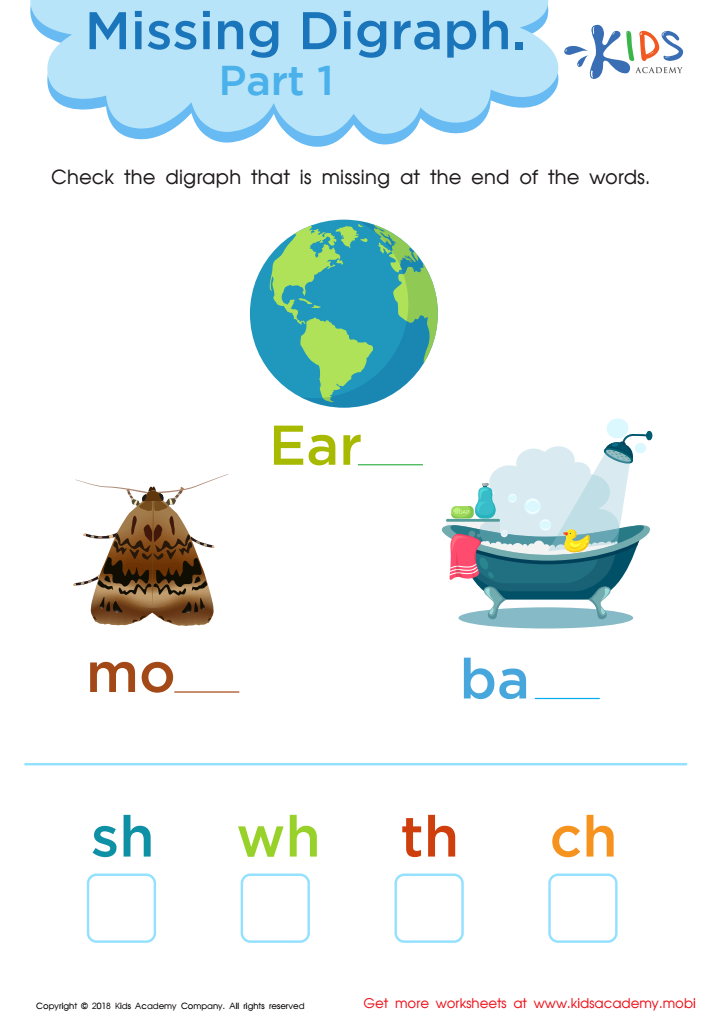

Missing Digraph: Part 1 Worksheet
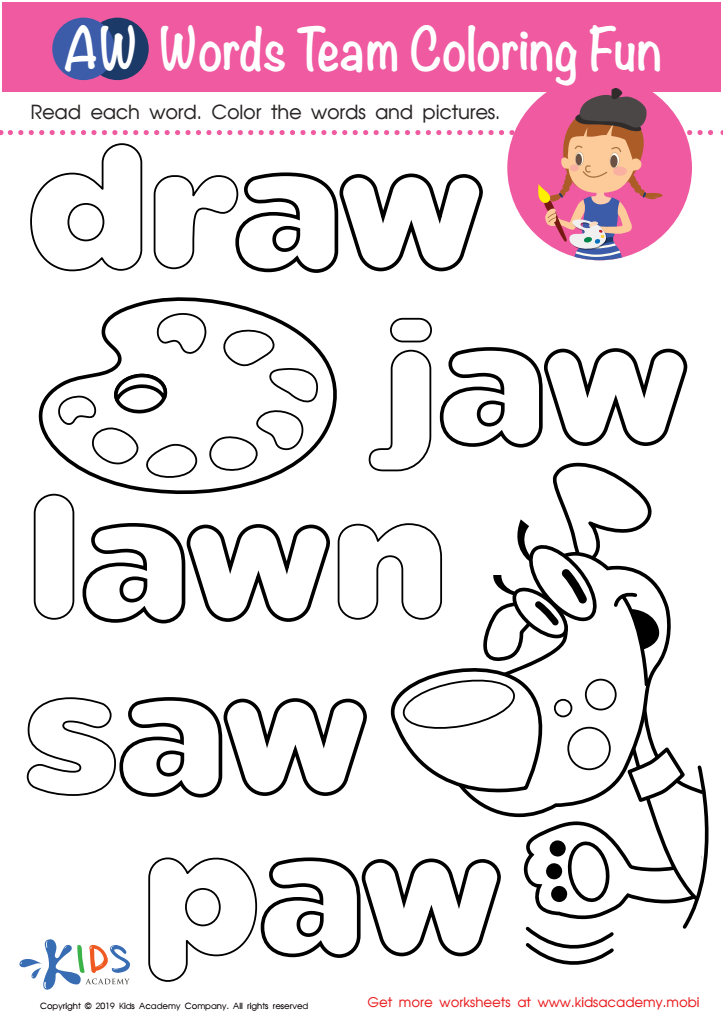

AW Words Team Coloring Fun Worksheet
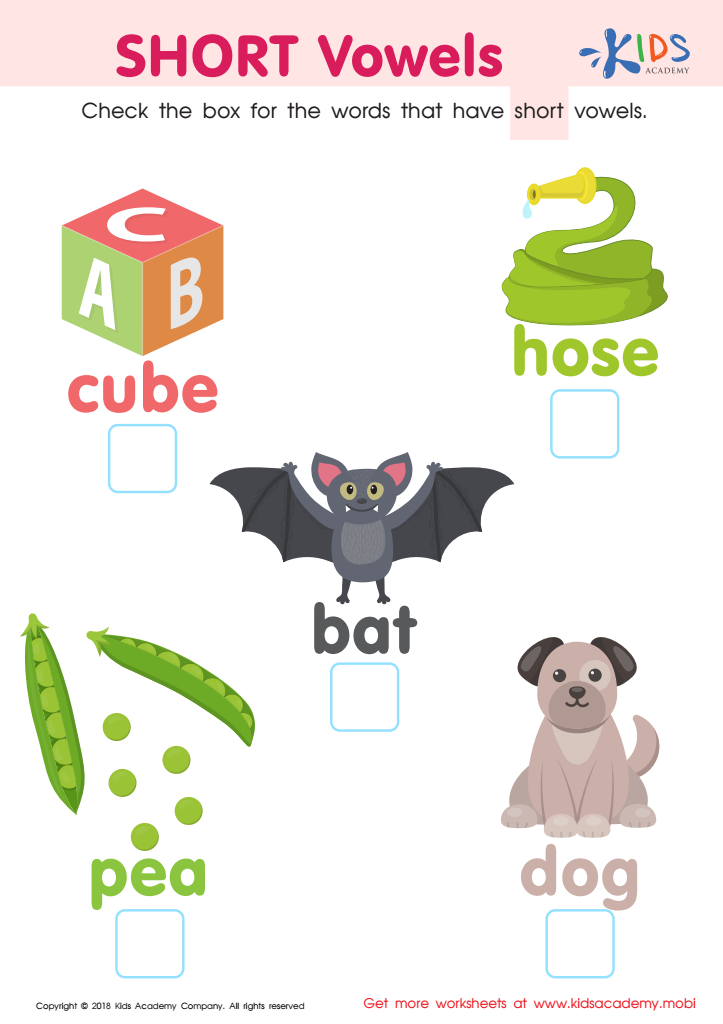

short vowels Worksheet
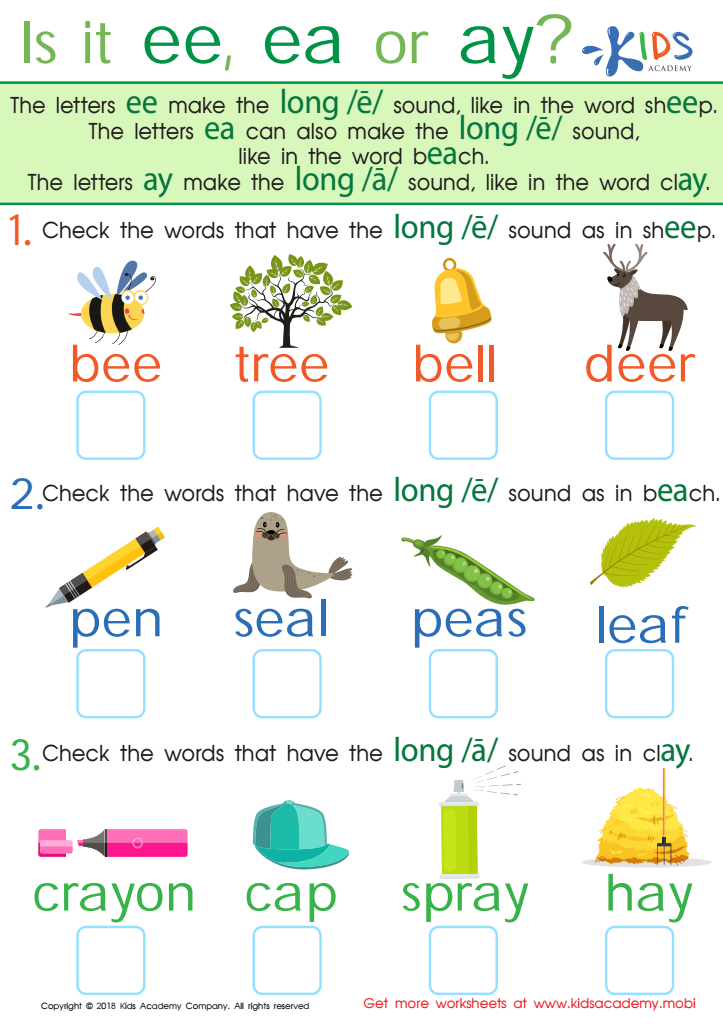

Is It EE, EA, or AY? Worksheet


Words with sound f Reading Worksheet
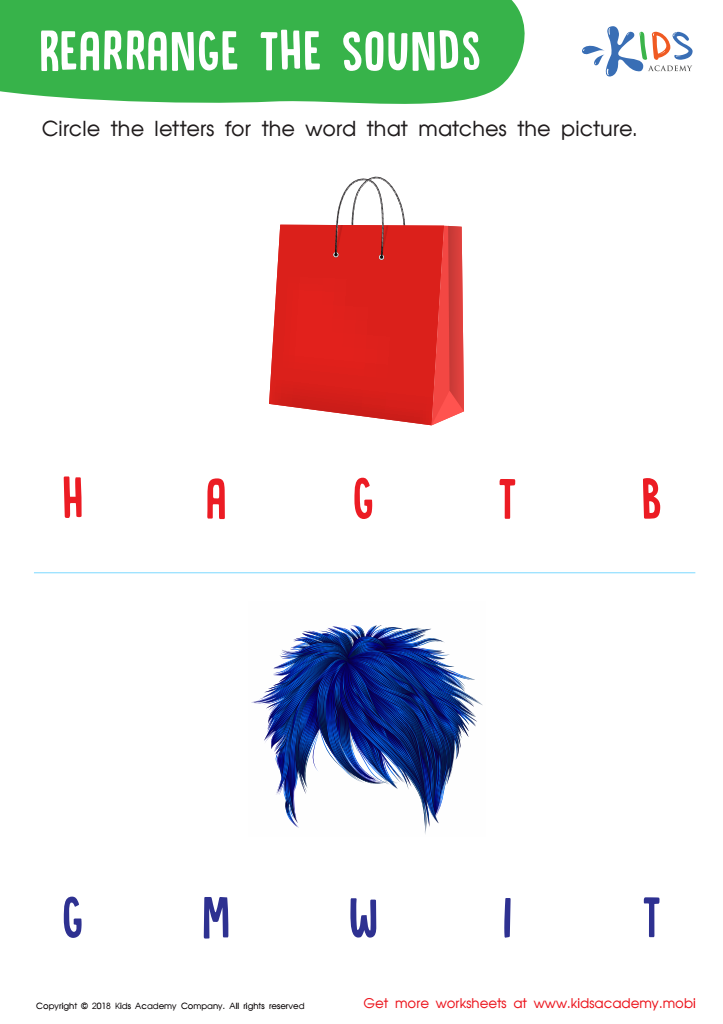

Rearrange the Sounds Worksheet
Spelling skills are crucial for 6-year-olds as they form the foundation for effective communication and literacy development. At this age, children are typically starting to read and write independently, and their ability to spell appropriately enhances their confidence and encourages them to express themselves more freely.
Parents and teachers play a key role in developing these skills because a solid understanding of spelling contributes to overall academic success. Good spelling enables children to comprehend the structure of words, improving their vocabulary and reading comprehension. It also fosters a sense of accomplishment as they gain mastery in writing simple sentences and stories.
Moreover, strong spelling skills can boost a child’s self-esteem. When they understand how words are constructed, they feel more capable in their reading and writing tasks. This sets a positive trajectory for future learning endeavors.
By encouraging activities that focus on spelling within a normal alphabet framework, parents and teachers can help children engage with the language in a way that's both fun and educational. Ultimately, this investment in their spelling ability will support their literacy journey and open the door to countless future opportunities in learning and communication.
 Assign to My Students
Assign to My Students




















